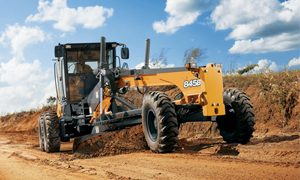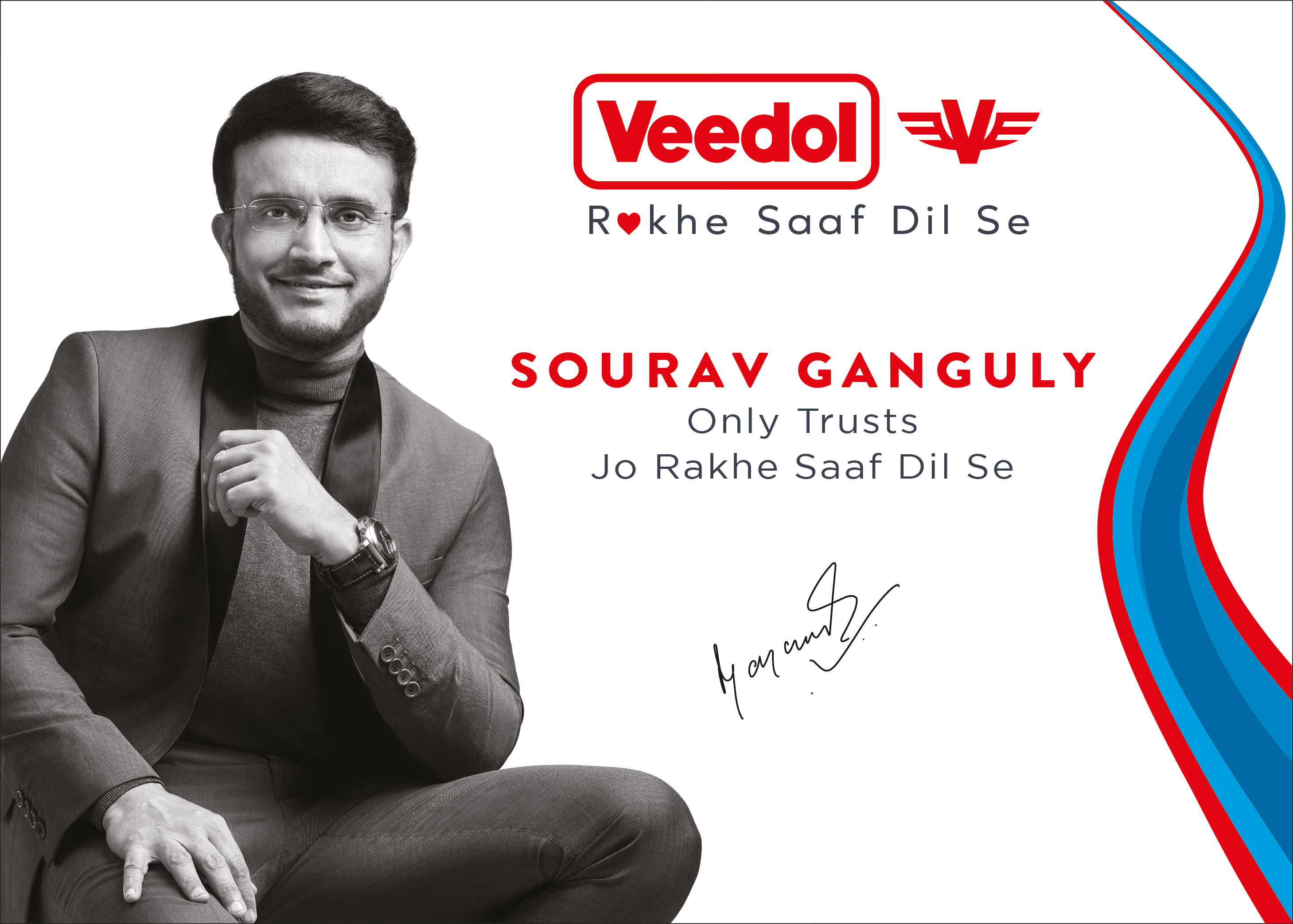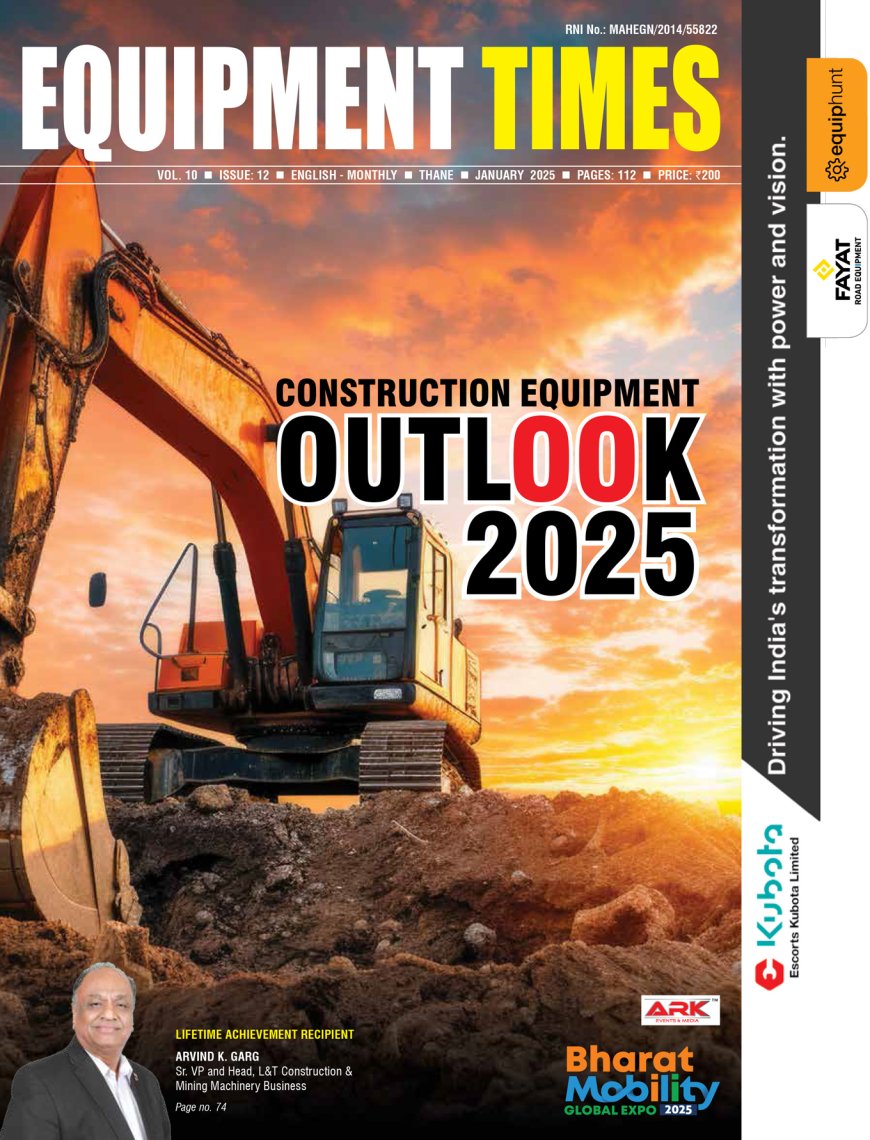Case India working on technology integration for product advancement.
CASE India always makes sure its products have Zero defects. Puneet Vidyarthi, Brand Leader, Case India. As the industry gears up for BS IV emission norms for wheeled and tracked equipment, Puneet Vidyarthi, Brand Leader at Case India states, the

CASE India always makes sure its products have Zero defects.
 Puneet Vidyarthi,
Puneet Vidyarthi,
Brand Leader,
Case India.
As the industry gears up for BS IV emission norms for wheeled and tracked equipment, Puneet Vidyarthi, Brand Leader at Case India states, the company is currently in transition stage and are working very closely with the R&D team to incorporate required technological changes in machines and make them stand out in the market.
The industry is going through a very hectic streamlining phase as companies are trying their best to adjust to new BS/Euro IV norms that have to be implemented by April 1, 2022. How do we see the OEMs such as CASE Constructions Equipment adjust to the forthcoming norms?
Following government directions, all wheeled construction equipment have to change to BS IV CEV norms by October 1, 2020 and the tracked equipment, which operate in stone-breaking and quarrying have to meet the norms by April 1, 2022. So, currently we are in transition stage. We are working very closely with our R&D team to incorporate required technological changes into our machines and make them stand out in the market.
The BS (CEV) IV standards are in general alignment with the European Stage IV standards for diesel engines used in non-road mobile machinery. We have our R&D centres and manufacturing plants in Europe which offers us know-how advantage for the new technology and remain ahead of the competition in this transition phase.
How has been the impact on demand and sales due to impending change?
Every transition brings fluctuation in demand for products and services so this is not a cause of worry since this change is for entire industry. We believe even the buyers will understand the necessity of the change and appreciate the new and cleaner technology which is for social good.
Additionally with improved infrastructure requirements, we are positive about exponential future growth.
 Would there be any change in the pricing and rentals of these vehicles because of new norms?
Would there be any change in the pricing and rentals of these vehicles because of new norms?
Shift to BS IV CE requires higher level of technological intervention which will impact output costs. There are going to be lots vehicle level changes like electronic engine , electronic control module , smart display ,etc. However the final pricing strategy will be decided closer to the deadline.
What are the new developments in the powertrains for Motor grader segment?
In the motor grader segment we have CASE 845B & CASE 865B imported from Brazil, ideal for road construction & CASE 865B ideal for mining application. Motor grader segment has – 845B along with dual HP-150HP / 173HP and 865B with triple HP- 193HP /205 HP / 220 HP which gives a unique mix of power and fuel efficiency.
CASE 845 B and CASE 865 B graders are equipped with 6.7-liter FPT engine with dual horsepower and triple horsepower respectively to match the power requirements of various applications and deliver optimum fuel efficiency. With BS IV norms adoption there are going to be changes and upgradation in engine rating, which we will keep you posted about, during the time of the launch.
In terms of new safety features what are the new advancements that we can expect from the company?
Operator comfort and safety are the most important factors to get optimum productivity from machine. Keeping these factors in mind, major CASE’s product offerings are equipped with closed air conditioning ROPS cabin whereas most of CASE’s competitors are providing open canopy.
On top of that, at CASE India, we are focusing on technology integration and engine efficiency which adds to machine uptime. Successful technology integration like IoT, Telematics, Robotics and Modern Manufacturing practices are the main advancements CASE India is working on.
Below are the few examples of increased operator safety in our products:
CASE 865B Grader is also equipped with hydraulic pitch control feature which helps operator to control moldboard pitch adjustment from cabin itself hence high productivity as well as operator comfort. CASE Graders and Dozers are equipped with closed HVAC (Air conditioning and heating) ROPS/FOPS cabin for better operator comfort and safety, whereas others are with open canopy.
CASE 845B, 14-ton and CASE 865B, 15.5-ton graders imported from Brazil are equipped with Fiat FPT, CRDI, electronic engines with variable horse power which results in best in class fuel efficiency. The engine assures higher productivity, reliability and significant amount of availability to contractors, with lesser maintenance costs. The electronic FPT engines, enables on-board diagnosis of the varied operating parameters which enables the operators to undertake timely preventive and predictive maintenance for better operator safety.
CASE India always makes sure that our products have Zero defects. To ensure this, we have quality checks at the end of every step of the manufacturing process. Until and unless, all quality checks have been passed, machine will not leave the assembly line. Each step in the process of making machines keeps environment in mind; the waste is always reused and recycled.
CASE India gives safety utmost importance, and no person can go to the working area until they have put on the safety jacket, shoes, gloves, goggles and helmet. From time to time, we do conduct inspection of the areas to ensure that there is no possibility of any loophole at the workplace.
What according to you is the requirement for skill development and training the workforce to make them future ready for Construction equipment segment? What is the company doing to train and skill the workforce that can use these vehicles as well as service them if required?
Lack of skilled workforce and inefficient trainees have always been a concern in manufacturing industry. Skilled workforce with proper training is the need for progressive work environment. For a skilled labour force we would require dedicated training centres that hosts training programs to make operators understand the machine mechanism, operations and get familiar with technical factors.
At CASE India, we have training centres that host training programs all-round the year for operators and customers to constantly keep them updated with latest practices and techniques. We deal with skilled manpower development or skilling the manpower with a multipronged approach. First approach is to train the operator. We have an operator training school which brings in unemployed youth. They are given hands-on training and understanding of the machines and its application in a better way.
The second approach is for heavy line machines like Graders and dozers, which are more technological, more sophisticated and need specialized operator. Here we provide trained operators to the customers and try to bridge the skill gap.
The third approach is about design change in the machines. Design change is a way that makes it easy for even a semi-skilled operator to run the machine. The machines are designed in such a way that even a semi-skilled operator can easily make out the critical parameters and coordinates of the machine.
What has been your total investment in training and skill development?
The investment is distributed among training facilities CASE has set up across all regions.
To ensure better maintenance of equipment, CASE India has dedicated training centres that host training programs all-round the year for operators and customers to constantly keep them updated with latest practices and techniques.
Hits: 67










